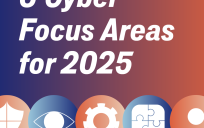As government agencies embrace digital transformation, workforce development in artificial intelligence (AI) and cybersecurity has never been more important. For federal leaders, ensuring their workforce possesses the skills to navigate these areas is crucial to the effectiveness of government initiatives. Investing in a skilled, adaptable workforce enhances resilience, mitigates risks and drives innovation across agencies.

Summary: As government agencies undergo digital transformation, prioritizing workforce development in AI and cybersecurity is essential to enhance resilience, close skills gaps, and foster an adaptable, future-ready federal workforce.
Core Workforce Development Needs
AI and Cybersecurity Skills Gap: With rapid technological advancements, government agencies are finding it difficult to keep pace. The U.S. Government Accountability Office (GAO) highlights an urgent need for trained cybersecurity personnel across agencies, as well as professionals with AI expertise to manage the integration of machine learning models. Leaders can address this skills gap by investing in continuous training programs that cover core AI and cybersecurity principles.
Reskilling and Upskilling Initiatives: As new threats emerge, cybersecurity and AI practices need constant updating. Leaders can drive workforce competency by promoting upskilling and reskilling initiatives. A recent study for example, offer resources that agency leaders can leverage to strengthen AI understanding and skill transference. The National Cyber Workforce and Education Strategy (2023) and like initiatives enable government workers to stay relevant and adaptable, ensuring agencies are prepared for future digital demands.
Implementing Effective Workforce Development Programs
Building a future-ready workforce requires commitment to both technical and ethical training. AI is transforming government operations, but without a robust understanding of its ethical implications, agencies risk breaching public trust. Leaders should establish development programs that not only focus on technical skills but also incorporate ethics in AI, ensuring that their workforce can use AI responsibly.
Moreover, adopting frameworks like the NICE Workforce Framework for Cybersecurity helps leaders outline skill requirements and structure effective cybersecurity training. This comprehensive approach ensures employees understand not only the tools and techniques but also the critical importance of ethical standards in protecting public data.
Fostering Continuous Improvement
Finally, workforce development is a long-term investment. Agency leaders should establish a culture of continuous improvement by encouraging team members to stay current on industry standards and pursue certifications, fostering a learning environment that values growth.
Dr. Rhonda Farrell is a transformation advisor with decades of experience driving impactful change and strategic growth for DoD, IC, Joint, and commercial agencies and organizations. She has a robust background in digital transformation, organizational development, and process improvement, offering a unique perspective that combines technical expertise with a deep understanding of business dynamics. As a strategy and innovation leader, she aligns with CIO, CTO, CDO, CISO, and Chief of Staff initiatives to identify strategic gaps, realign missions, and re-engineer organizations. Based in Baltimore and a proud US Marine Corps veteran, she brings a disciplined, resilient, and mission-focused approach to her work, enabling organizations to pivot and innovate successfully.





Leave a Reply
You must be logged in to post a comment.